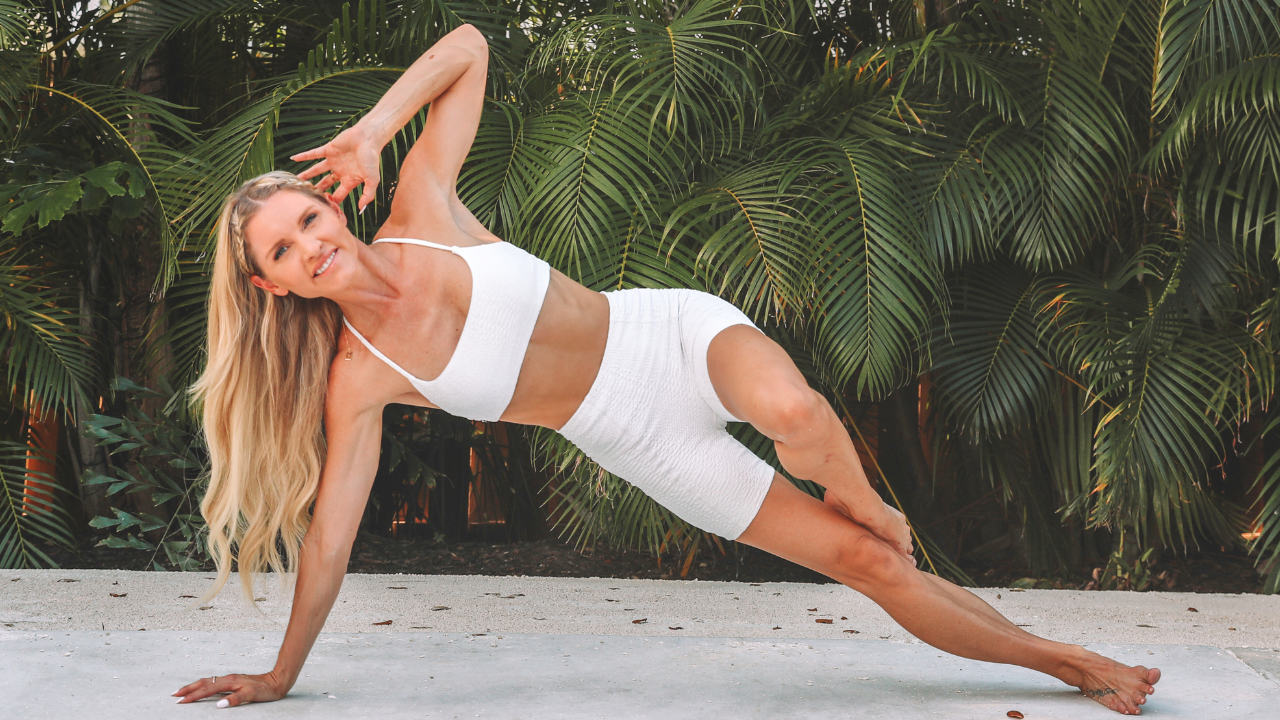Overcoming Setbacks and Mastering Mental Strength for Fitness Success

When it comes to fitness, mental toughness is often overlooked, and it's crucial for long-term success. Building mental resilience isn’t just about pushing through a tough workout—it’s about overcoming self-doubt, staying focused, and refusing to let setbacks derail you. The journey to physical fitness is just as much a mental battle as it is a physical one, and mastering your mindset is key to achieving your goals.
Why Mental Resilience Matters
Mental resilience is the ability to recover quickly from difficulties, bounce back from setbacks, and maintain focus when things get tough. It's the grit that keeps you moving forward even when progress feels slow or when challenges arise. I always tell my community, your mind gives up long before your body does, which is why it’s so important to train your mental muscles along with your physical ones.
In my own experience, whether I was summiting Mount Everest or pushing through a workout, I found that mental resilience was my greatest ally. Without it, it's easy to fall into the trap of giving up when things get hard, and that’s where the biggest threat to your fitness goals lies. This resilience doesn’t come from being superhuman; it comes from training your mind to endure, adapt, and push beyond what you thought possible.
For a deeper dive into building mental resilience, check out my podcast episode on The Power of Mindset: Change Your Thoughts, Change Your Life. We talk about how your mindset shapes your reality and the incredible impact positive thinking can have on your life.
The Role of Self-Doubt in Fitness
Self-doubt is one of the biggest obstacles when it comes to achieving your fitness goals. We all have that little voice in our heads saying, you’re not strong enough, this is too hard, or you’ll never get there. It's crucial to learn how to quiet that voice and replace it with one that encourages and motivates you.
Remember, everyone doubts themselves sometimes, and it’s the people who move forward despite that doubt who find success. When I first started my fitness journey, I was far from confident in my abilities. Over time, by focusing on small wins and celebrating every bit of progress, I learned how to overcome that negative inner dialogue.
The trick is to challenge your doubts with action. Every time you feel like you can’t, prove to yourself that you can. For instance, when I train people in my BURN App, I often tell them to set small, achievable goals. When you hit those milestones, you start to build confidence, and that confidence turns into momentum.
Focus: Staying the Course
Staying focused is another pillar of mental resilience. Life will always throw distractions your way—work deadlines, family responsibilities, or unexpected life events. The key is learning how to refocus and keep your eyes on the prize.
One of the most effective ways to maintain focus is by setting clear, actionable goals. Break your long-term fitness goals into smaller, manageable chunks. This is exactly what we do in my BURN Method. Instead of looking at a big, overwhelming goal like "lose 30 pounds" or "run a marathon," focus on what you can do over the next 30 days to get there. By setting smaller, achievable goals, you keep your momentum going and stay motivated even when distractions pop up.
Another great tool for focus is to remind yourself of your why. Why did you start this journey in the first place? Why do you want to get fitter, stronger, or healthier? Keep that reason front and center because when your motivation starts to wane, your "why" will keep you grounded and moving forward.
Overcoming Setbacks
Setbacks are inevitable in any fitness journey. Whether it’s an injury, a busy season at work, or simply not seeing the progress you hoped for, there will be times when you feel like giving up. This is where your mental resilience is really put to the test.
In my book It Takes Grit, I talk about how setbacks are not failures—they're simply opportunities to learn and grow. When you face a setback, instead of thinking I’ve failed, think What can I learn from this? and How can I come back stronger? That shift in mindset is everything.
For example, I’ve had injuries that sidelined me for weeks, and it would’ve been easy to give up. Instead, I used that time to focus on other areas of my health and fitness. Maybe I couldn’t run, so I focused on my nutrition or worked on strengthening other parts of my body. Mental toughness isn’t about never facing obstacles; it’s about how you respond to them.
Check out my blog episode on 3 Steps to Change Your Life. These are my simple yet powerful three-step processes that have helped thousands of women just like you transform their bodies, boost their confidence, and unleash their incredible inner power.
How to Build Mental Resilience
Building mental resilience is like building physical strength—it takes practice, consistency, and time. Here are some strategies to help you strengthen your mental game:
- Start with a Positive Mindset: Your mindset is everything. Before you even begin your workout or your day, remind yourself of your goals and why you started. Embrace a can-do attitude. It’s not about being perfect; it’s about progress and persistence.
- Visualize Success: This is one of my favorite tools. Before every workout or challenge, close your eyes and visualize yourself succeeding. Imagine how it will feel to hit that goal, to cross that finish line, or to reach that next level of fitness. When you can see success in your mind, it becomes more tangible and achievable.
- Set Small, Achievable Goals: As I mentioned before, breaking down big goals into smaller ones makes them feel more attainable. It also gives you regular wins, which build confidence and resilience over time.
- Get Comfortable with Discomfort: In fitness, there’s always going to be discomfort—whether it’s the burn in your muscles during a tough workout or the hunger pangs when you’re adjusting your nutrition. Learning to sit with that discomfort and push through it is a huge part of building mental resilience. Remember, your mind gives up long before your body does.
- Celebrate Your Wins: Every step forward is a victory. Don’t wait until you hit the big goal to celebrate—acknowledge the small wins along the way. Every time you push through a tough workout, every healthy meal you choose, every pound lifted is a win.
- Surround Yourself with Positivity: Your environment plays a huge role in your mental toughness. Surround yourself with people who encourage and support you, whether that’s a workout buddy, a coach, or an online community like we have in the BURN App. Positivity is contagious, and being around others who are focused on their goals will help you stay on track.
- Develop a Routine: Having a solid routine gives you structure and makes it easier to stay consistent. Whether it’s a morning workout or setting aside time to prepare healthy meals, building these habits into your daily life strengthens your mental resilience. Routine creates discipline, and discipline builds success.
Building Grit
At the end of the day, building mental resilience is about showing up for yourself, no matter what. It's about developing the grit to keep going even when things get tough and having the belief that you are stronger than your doubts, setbacks and obstacles.
Fitness is a long-term journey, and it requires both physical and mental strength. Here’s the thing—you already have what it takes. You just need to tap into it. Every time you push through a tough moment, every time you overcome a setback, you’re building a stronger more resilient you.
So, the next time you’re in the middle of a tough workout, or you feel like giving up on your fitness goals, remember this: The only limits that exist are the ones you put on yourself. You are capable of so much more than you think—keep going, keep pushing, and keep believing in yourself.
Your fitness journey isn’t just about getting stronger physically—it’s about building the mental resilience to achieve any goal you set your mind to.
Let’s find that grit together and make it happen!
Love,
Rebecca Louise





